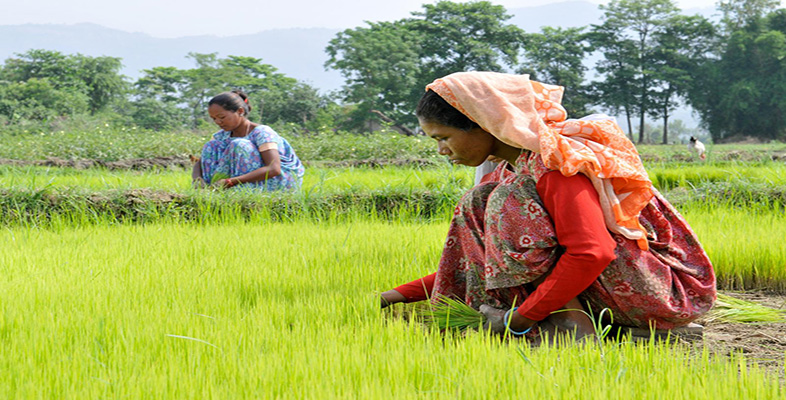2.2 Climate change in a globalised world
As you will recall from Reading 1A, the people of Tuvalu are now arguing that larger and more affluent nations should take responsibility for the climatic changes threatening their country. As Paani Laupepa from the Tuvalu environment ministry put it: ‘We are on the front line … through no fault of our own. The industrialised countries caused the problem, but we are suffering the consequences’ (Lynas, 2003). Before we look more closely at this charge, and the scientific evidence that is being compiled to support it, it is important to appreciate how the problems faced by Tuvalu form part of a much larger issue that implicates other countries or regions in different ways.
Activity 2
I would like you to turn to Reading 1B by Molly Conisbee and Andrew Simms (2003) entitled ‘Environmental refugees: the case for recognition’, which you will find attached below. The aim of this piece is to gain recognition for people displaced by what the authors claim is accelerating environmental degradation. It addresses the issue in a general sense, gathering evidence from around the world.
As you are reading, note how often the terms ‘global’ or ‘international’ or some variants of these words appear.
What kind of relationships do you think the authors are attempting to establish between distant places?
What kind of image of the world are the authors seeking to convey?
Click to view Reading 1B (3 pages, 0.08MB). [Tip: hold Ctrl and click a link to open it in a new tab. (Hide tip)]
Many claims are made in Reading 1B. You may have come across similar pronouncements in news media reporting. There are quite a lot of ‘ifs’ and ‘mights’ in the reading, and you should be mindful that some of the arguments are hotly contested (as we will see later in Section 4.3), although the references to Oxford University analysts, world organisations and international panels of scientists are intended to lend them a certain authority.
At the heart of Conisbee's and Simms's argument (2003) is a sense that the planet is being transformed in its entirety by human activity. The term ‘global’, as it prefixes the issue of climate change, points to flows or interconnectivities that link people and places over vast distances. Like Paani Laupepa from the Tuvalu environment ministry in Reading 1A, Conisbee and Simms make a strong case for the argument that what some people do on one side of the world has serious implications for the lives of others on the other side of the world.
Human-induced climate change, then, is not simply a process that takes place in a globalised world. It also helps bring the question of what we mean by ‘globalised world’ into focus, adding a powerful new dimension to the idea of an increasingly interconnected planet. The issues revolving around climate change do more than simply enfold all of us into a single, unified world. The geographical imagination suggested by Readings 1A and 1B is one that draws connections across great distances, yet also makes important distinctions between the conditions of life of people in different parts of the world. The issue of climate change prompts us to take account of flows around the globe, but also impels us to think in new ways about the countries or territories where most people live, most of the time.
